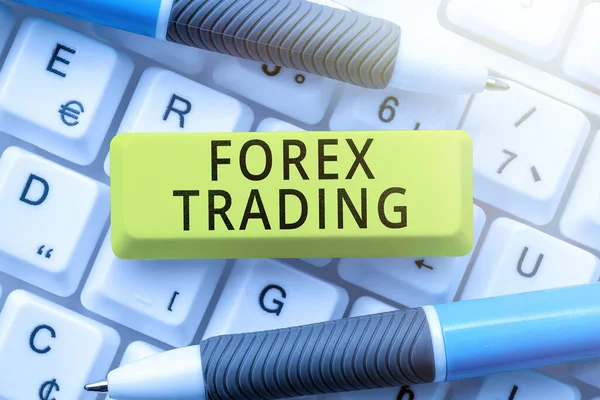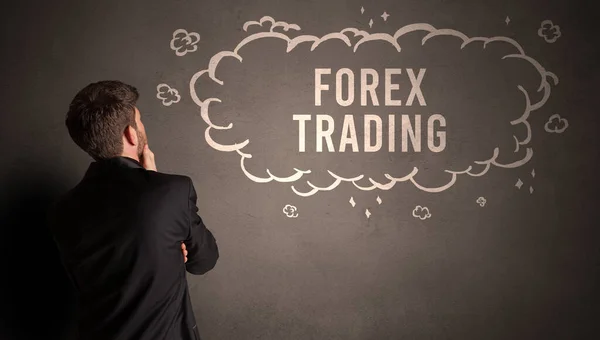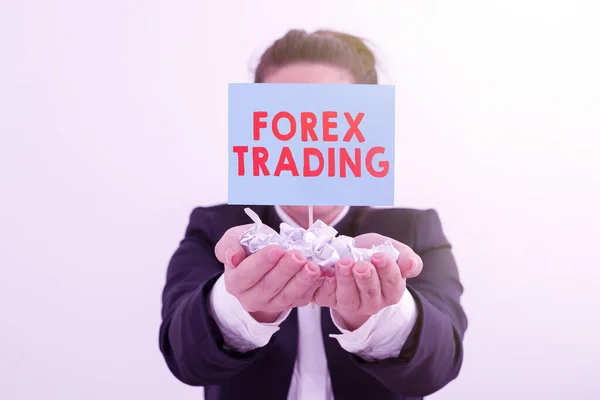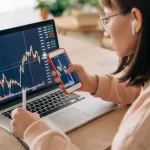Unmasking Forex Trading: The Reality Behind the Hype
Forex trading, also known as foreign exchange trading or currency trading, is a decentralized global market where all the world’s currencies are traded. This market, with a daily turnover of over $5 trillion, enthralls millions of traders worldwide. However, beneath the appealing facade of high-profit potential, a dark side lurks: the prevalence of scams.
Forex trading is not a get-rich-quick scheme. It requires substantial knowledge, skill, and patience. The hype surrounding this market is often amplified by social media influencers and fraudulent educators promising significant returns with minimal effort. People new to the market, drawn by the allure of easy money, often fall prey to these fraudulent individuals and organizations.
It’s important to understand that forex trading involves significant risk, and losses can exceed deposits. This is due to the leverage provided by brokers, which can multiply both profits and losses. Professional traders often consider risk management as important, if not more so, than profit expectations. Therefore, anyone promising guaranteed returns or no-risk trading should be regarded with suspicion.
Forex trading is a legitimate investment avenue, but it’s not for everyone. It requires a considerable time investment to learn about the factors affecting currency prices, various trading techniques, and risk management strategies. Many successful traders have spent years honing their skills. Keep in mind that anyone can lose money in forex trading, even experienced traders.
Recognizing Forex Trading Scams: Common Red Flags
Forex trading scams often share common characteristics. Recognizing these red flags can help you avoid falling into a trap.
Firstly, be wary of guarantees of high profits. No one can predict currency price movements with absolute certainty. Therefore, anyone promising a specific return is likely a scammer.

Secondly, watch out for pressure to invest quickly. Scammers often try to create a sense of urgency to prevent potential victims from thoroughly researching their offerings.
Thirdly, be suspicious of secretive or complex trading strategies. Legitimate traders and educators should be able to explain their strategies in a way that anyone can understand.
Fourthly, check the credibility of the trading platform. Scammers often use unregulated platforms that lack necessary safeguards. Look for platforms regulated by trustworthy financial bodies like the Financial Conduct Authority (FCA) or the Commodity Futures Trading Commission (CFTC).
Lastly, be cautious of unsolicited investment opportunities. If you receive an unexpected call or email about an incredible forex trading opportunity, it’s likely a scam.
The Illusion of Easy Money: Forex Scam Tactics Exposed
Forex scammers often use a variety of tactics to make their offerings seem more appealing. Here are three common ones.
The first tactic is social proof. Scammers often showcase testimonials from “satisfied customers” who have supposedly made enormous profits. However, these testimonials are often fake, and the photos used are usually stock images.
The second tactic is the use of complex jargon. By making their strategy seem highly technical and sophisticated, scammers can confuse potential victims into thinking that they’re investing in something legitimate.
The third tactic is the promise of insider information. Scammers may claim to have exclusive access to information that will guarantee profits. However, the foreign exchange market is so large and influenced by so many factors that no one has access to all information.
Victim Stories: Real-Life Experiences with Forex Scams
Countless individuals have fallen victim to forex trading scams. Here are a few common narratives.
One victim was lured into a scam by a charismatic influencer on social media who promised high returns and a luxury lifestyle. After investing several thousand dollars, the victim was unable to withdraw their profits and eventually lost their entire investment.
Another victim was convinced to invest in a seemingly sophisticated trading algorithm that promised consistent profits. However, after a few months of initial success, the algorithm began making irrational trades, and the victim’s account balance dwindled to nothing.

A third victim received an unsolicited call from a company claiming to offer a no-risk forex trading opportunity. After investing a significant sum, the company became unresponsive, and the victim never recovered their money.
Safeguarding Your Investments: A Guide to Legitimate Forex Trading
Legitimate forex trading doesn’t involve guaranteed profits or secret strategies. It involves careful analysis, patient strategizing, and prudent risk management.
A reputable trading platform will be licensed and regulated by a trustworthy financial body. It will also provide thorough educational resources to help users understand forex trading and develop effective strategies.
Legitimate traders understand that losses are part of the game. They focus on managing their risk and learning from their mistakes, rather than chasing unrealistic profits.
When investing in forex, it’s crucial to do thorough research. Understand how the market operates, learn about different trading strategies, and carefully evaluate any educational programs or mentors you’re considering.
Avoiding the Pitfalls: Steps to Stay Safe in Forex Trading
There are several steps you can take to protect yourself from forex trading scams.
- Be skeptical of guarantees of high profits.
- Do thorough research before investing.
- Use a licensed and regulated trading platform.
- Be wary of pressure to invest quickly.
- Understand that losses are a part of forex trading.
By keeping these steps in mind and approaching forex trading with an understanding of its risks and complexities, you can protect yourself from scams and potentially achieve success in this challenging market.
Conclusion
Forex trading is a legitimate and potentially lucrative investment avenue. However, it is also a breeding ground for scams. By recognizing the common red flags, understanding the tactics used by scammers, and taking steps to safeguard your investments, you can navigate the forex market with confidence. Always remember that knowledge and patience are your best weapons against scams.





